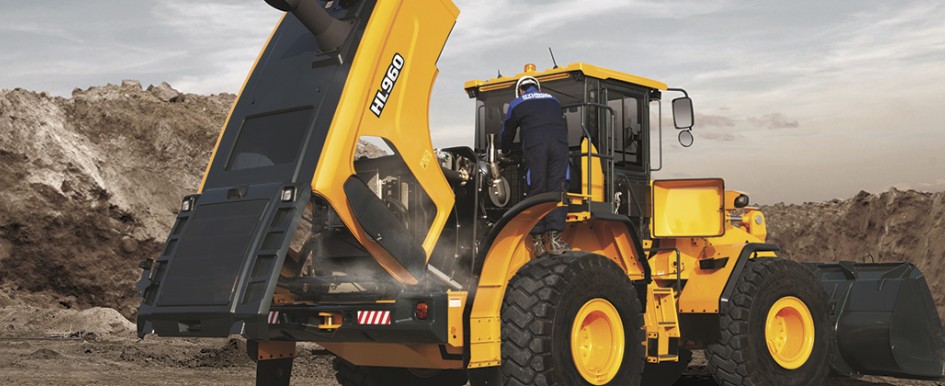
A contractor’s list of maintenance tips ranges from checking fluids daily and properly lubricating components to contacting your local dealer for support. Learn about what you might be missing from the following compilation of the five most commonly ignored wheel loader and excavator maintenance tips.
Wheel Loader Maintenance Tips
- Tires and wheels—Checking tire air pressure and missing lug nuts should be part of your wheel loader operator’s daily routine. Check the angle of wheels compared to axles, as excessive lean can be an indication of worn or damaged wheel bearings.
- Drive shaft—Check the drive shaft U-joint straps and retaining bolts, along with any carrier bearings, for misalignment or lack of lubrication. Poorly maintained driveline components can lead to costly repairs.
- Radiator—Make sure the radiator is clean of buildup to avoid engine overheating in warmer months. Any coolant leak or hydraulic/transmission leak near the radiator can lead to excessive buildup of dirt on the radiator fins, which restricts or blocks airflow, causing an overheat condition that can damage the engine and other components.
- Transmission oil levels—Check levels regularly and be careful not to overfill. Overfilling the transmission can actually cause it to overheat during heavy-use conditions.
- Bucket—Make sure to regularly check bucket edges and flip when needed. Not only will this extend the life of the bucket cutting edge, but it will reduce the effort needed as the machine drives into material to fill the bucket.
Excavator Maintenance Tips
- Swing gearbox—Gearboxes require an oil change at approximately 1,000-hour intervals. The swing gearbox oil level is often overlooked and can cause costly damages if ignored. Low levels can mean a leak in the turntable. Operators should always look for any signs of water getting into the reduction gear itself. Water can cause rust and pitting on bearing surfaces.
- Hydraulic cylinders—Always check the condition of the chrome on hydraulic cylinder rods. Imperfections in the chrome will collect foreign materials that will start to eat at the seals in the cylinder gland, causing the cylinder to leak around the rod. New seals fix the problem for a short time, but if the damage is ignored, it will result in another leak.
- Battery—A bad cell in a battery can cause unstable electrical faults. Most systems must see at least 18 volts at all times while in operation. At any level below 18 volts, the system becomes unpredictable, which can lead to issues with throttle control, hydraulic functions and false readings.
- Undercarriage—Excavator tracks must be kept properly adjusted to maximize longevity and minimize wear on the track and its components. Track tension should be monitored regularly during the day, as tension will change depending on site conditions and OEM specifications. Correct tension is the biggest factor operators can control that greatly impacts undercarriage life. Check the undercarriage at least once a week and learn how to do a quick undercarriage appraisal. Wear limits that operators need to be aware of should be listed on all the undercarriage components, and include idler and roller wear and bushing wear on the track chain.
- Lubrication—Grease is the lifeblood of all pins and bushings. As a general rule, operators should grease all pins and bushings daily. If multiple operators are using a single machine, you can mark less obvious grease points with orange marking paint around the grease nipple to remind all users to perform this task. Don’t overgrease, though. One to three shots of grease is plenty to do the job.
A final, frequently ignored maintenance tip involves the keeping of accurate maintenance records. This applies to all of your heavy equipment. Record keeping may seem tedious, but holding on to service records and invoices for oil, filters and repairs can provide invaluable information in the future when evaluating the service life of your machine. Good service records can help boost resale value and records are also helpful when working with your dealer if any issues should arise.
The consequences of neglect can be severe and costly—it can result in downtime, lost productivity, lost revenue and unexpected costs, such as machine rental and reduced trade-in values. Any one of these factors is a strong argument for a focused effort on these frequently ignored maintenance requirements.

